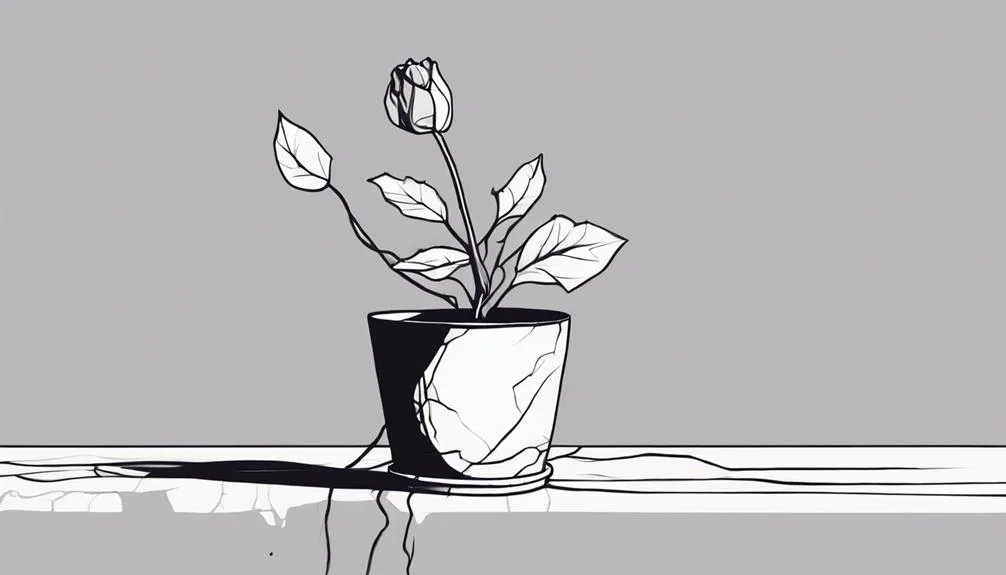In relationships, it's not always clear when things turn unhealthy, particularly with emotional abuse. This type of abuse can include constant criticism, feeling cut off from friends and family, and doubting your own experiences. Recognizing these signs is crucial for your mental health.
This introduction will help you understand how these behaviors affect you and what you can do about it, guiding you towards a healthier path in your relationships.
Key Takeaways
- Constant criticism and degradation from your partner are signs of emotional abuse.
- Isolation from friends and family by your partner fosters dependency and control.
- Experiencing gaslighting or reality distortion tactics indicates manipulative abuse.
- Public humiliation and excessive control over your life are red flags of abusive behavior.
Constant Criticism and Degradation
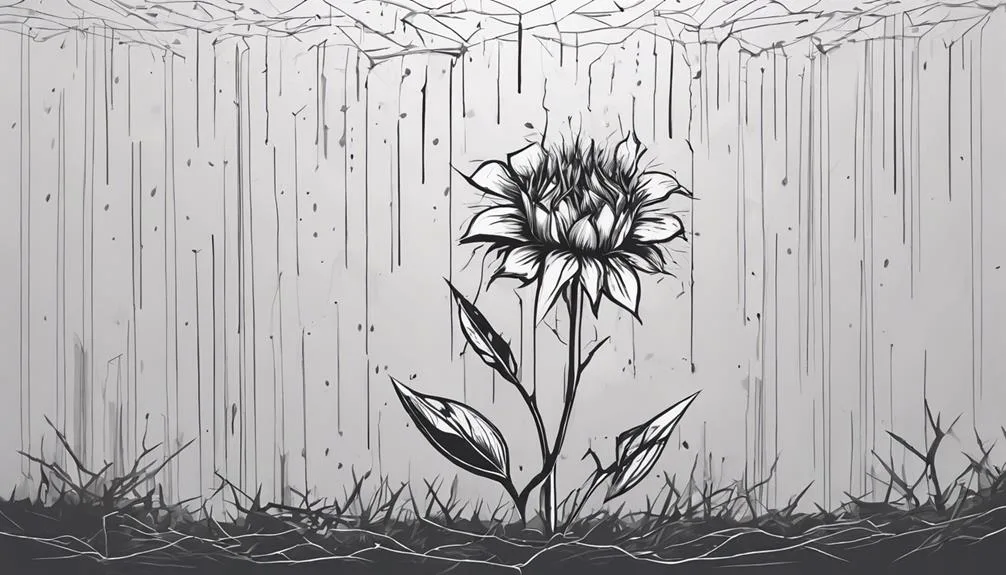
One clear sign of emotional abuse in a relationship is when your partner persistently criticizes and degrades you, making you feel worthless. This relentless negative feedback can severely impact your self-esteem. You might start doubting your worth and capabilities, which is exactly what the abuser wants. They aim to make you feel so low that you become dependent on their approval and validation.
Additionally, these destructive communication patterns are a red flag. Healthy conversations involve support and constructive feedback, not constant belittlement or disparagement. If you find that your partner's words are more often cutting than kind, it's a sign that the relationship is veering into emotionally abusive territory. Recognizing this pattern is essential for your mental health and well-being.
Isolation From Friends and Family
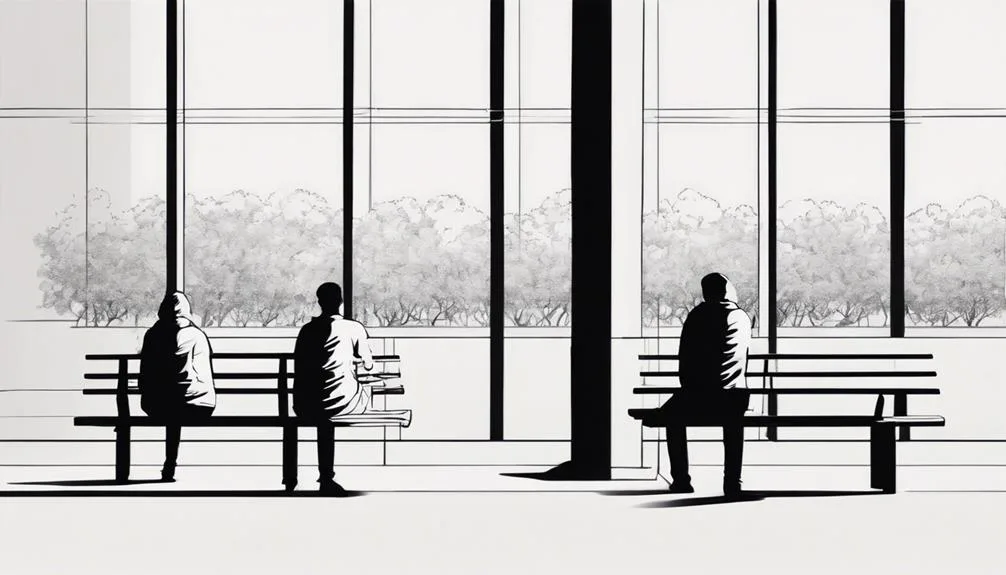
Have you noticed your partner increasingly trying to cut off your connections with friends and family? This isolation is a vital sign of emotional abuse. By limiting your interactions, they aim to control you, fostering a sense of dependency. It starts subtly, maybe with negative comments about those you're close to, gradually escalating to outright demands to avoid them. This leads to social withdrawal, making you feel alone and vulnerable, reliant solely on your partner for emotional support.
Communication barriers are erected, further isolating you. Your partner may monitor calls and messages, or instigate arguments when you attempt to socialize, reinforcing the isolation. Recognizing these tactics is essential—they're designed to weaken your support network, leaving you feeling trapped and powerless.
Gaslighting and Reality Twisting

Gaslighting, a manipulative technique where your partner denies your reality, makes you question your memories and perceptions, undermining your sense of truth. This form of emotional abuse is not only confusing but deeply harmful, leading to significant self-doubt amplification. Memory manipulation is a key tool in their arsenal, making you feel like you're losing your grip on reality.
| Signs of Gaslighting | Impact on You | What It Looks Like |
|---|---|---|
| Denial of past events | Increased confusion | "That never happened." |
| Trivializing feelings | Feelings invalidated | "You're too sensitive." |
| Shifting blame | Self-blame | "You're making me do this." |
| Questioning your memory | Doubt in perception | "Are you sure? You tend to forget." |
| Withholding information | Isolation | "I didn't think you needed to know." |
Excessive Control and Monitoring
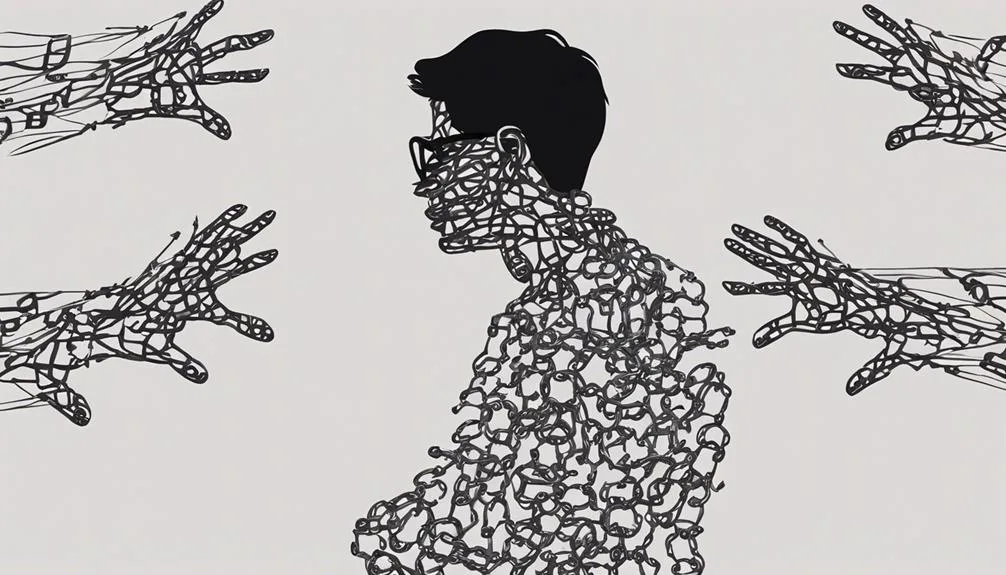
Excessive control and monitoring in a relationship can greatly erode your sense of independence, making you feel constantly scrutinized. This erosion often manifests through various tactics that may seem benign at first but are actually forms of privacy invasion and financial restrictions. These tactics include:
- Demanding access to your personal devices without respecting your privacy.
- Tracking your location without your consent or knowledge.
- Insisting on knowing the details of every interaction you have with others.
- Imposing strict financial restrictions, controlling how you spend your money.
- Making unilateral decisions about plans or activities without considering your input or preferences.
These actions not only invade your privacy but also limit your financial independence, creating a dynamic where you're left feeling trapped and powerless.
Frequent Humiliation

In a relationship, frequent humiliation, often disguised as jokes or criticism, can deeply hurt your self-esteem and sense of worth. This emotional abuse tactic may involve your partner mocking you in front of others, forcing you to make public apologies for minor mistakes, or even using social media to shame you.
These actions aren't just embarrassing; they're designed to undermine your confidence and control you by making you feel inferior. If you find yourself apologizing publicly for things that shouldn't require such actions or notice your partner enjoys posting humiliating content about you online, it's a clear sign of emotional abuse.
Recognizing these patterns is essential in taking steps to protect your well-being and seek support.
Withholding Affection as Punishment
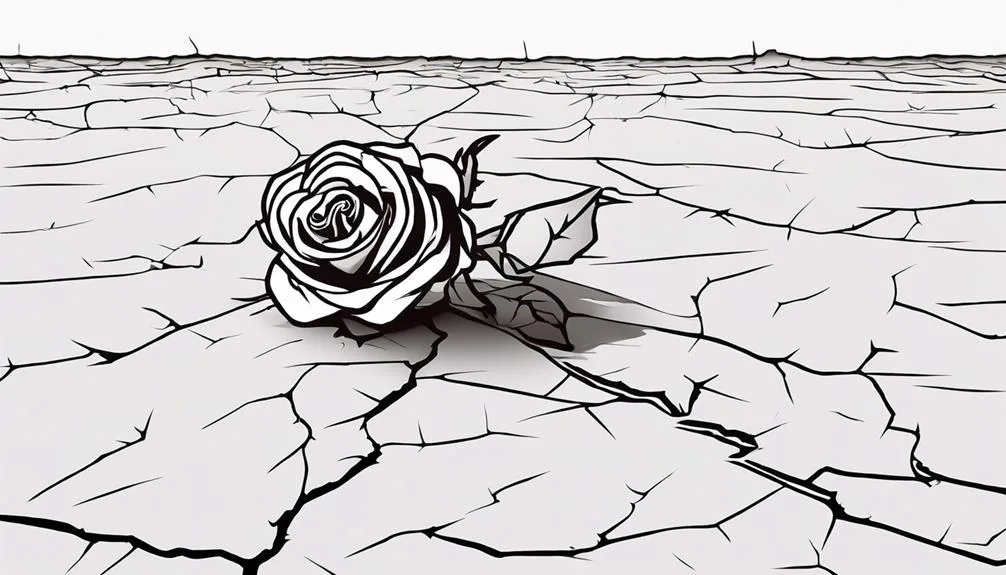
Withholding affection as a form of punishment can severely damage the emotional bond in a relationship, making you feel isolated and unloved. Understanding the importance of affection is vital to maintaining a healthy emotional connection. Rather than using affection as a tool for punishment, exploring alternatives can foster a more supportive and understanding relationship environment.
- Suddenly becoming cold and distant after an argument.
- Refusing to touch or hug you as a form of 'discipline.'
- Ignoring your attempts to show love, turning them down as punishment.
- Withholding words of love, affirmation, or support when upset.
- Using affection only as a reward, not a constant in the relationship.
Threats and Intimidation

Just as withholding affection can erode the emotional foundation of a relationship, threats and intimidation serve as another damaging tactic that can instill fear and undermine trust.
When your partner resorts to financial threats, they're leveraging power to control or manipulate you, suggesting dire consequences if you don't comply with their demands. This tactic can leave you feeling trapped and helpless, questioning your ability to survive independently.
Similarly, the silent treatment is a form of emotional blackmail designed to punish you without outright aggression. It's a tactic that says, 'You're not worth my attention,' isolating you and forcing you into submission through loneliness and despair.
Both methods are potent tools in an abuser's arsenal, aimed at eroding your self-esteem and autonomy.
Conclusion
Recognizing constant criticism, isolation, gaslighting, excessive control, humiliation, and the withholding of affection as indicators of emotional abuse is crucial. These red flags, along with threats and intimidation, highlight the importance of acknowledging the unhealthy dynamics within a relationship.
Prioritizing your well-being and seeking support are essential steps toward healing and regaining emotional freedom. As we reflect on these signs, consider what steps can be taken to foster healthier relationships and environments, not just for ourselves but for those around us.

